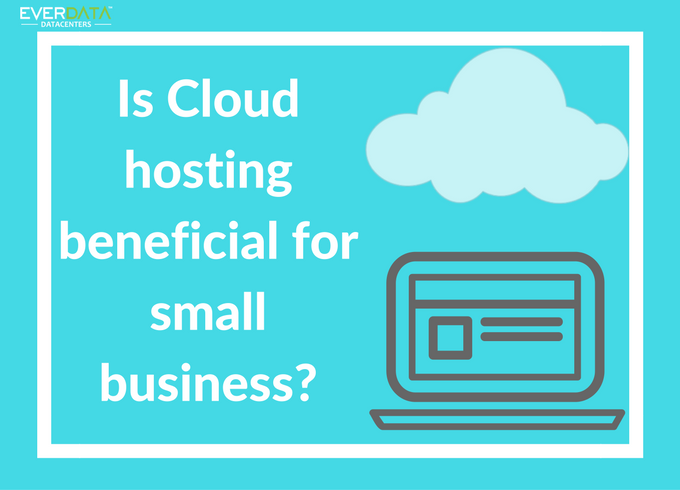
Submitted by Akshay on

Just like information technologies have transformed the business, so cloud computing endeavors to change the means corporations do business.
Cloud computing considers by many IT authorities as the tool ruling the next generation, being able to give affordable, faster, portable and trustworthy operations for all sets of companies, whether they are large, medium or small.
Although, there was a time when the advantage of cloud hosting model was only confined to big and massive multinational enterprises with the diverse business sector.
Nevertheless, the accelerated evolution of the advanced technology made it achievable even for the small businesses with limited resources to have access to cloud hosting services.
If deciphered in a simple phrase, we can say that cloud server hosting is a technology which allows you to keep your data secure and safe over the internet in a remote place.
It is supported by the assemblage of servers which have been put in association so as to provide shared advantages.
Have you been considering a move to Cloud City?
Many small enterprises have moved to cloud computing for their data backup and recovery, but that doesn�t mean the approach is appropriate for everybody.
Are there any genuine benefits of Cloud Hosting for Small Business? The answer is affirmative, and this article examines some of them. Let’s get started.
[Tweet “Have you been considering a move to Cloud City? Have a look on advantages.”]
#1. Reduced Costs
Consider the following scenario:
A small start-up needs a server to keep all of its�Business-Critical information. Buying an actual traditional server will not only take a lot of money; it will also require a lot concerning overhead and sustenance.
The company also has to obtain the services of a qualified IT engineer to make certain the server correctly runs�at all times. Software programs require to be continually patched and�updated as well, which typically cost money.
Startups and small corporations are often under-capitalized, and pay-as-you-go paradigm permits them to pay for the sources they are practicing or want to use rather than spending on many of upfront charges.
It is one of the significant benefits of cloud computing is that it decreases hardware costs.
Getting more for less is a goal for every single company, but this is especially the case for small enterprises.
Cloud Hosted Servers�decrease the costs happens in various states of evolution, from the beginning investments and operating expenses to IT expenses, etc.
Also the ability to pay-per-use for cloud hosting gives users the freedom and flexibility to save more.
[Tweet “The ability to pay-per-use for cloud hosting gives users the freedom and flexibility to save more.”]
#2. Better Collaboration
When a company runs by a large collaboration, everything from regular operations to outstanding buyer service is managed and examined.
Collaboration lets a small business work like a Fortune 500 firm, keeping clients informed, team members on task and mobile workers functional and efficient throughout the working time.
The cloud gives this degree of collaborative functionality to small companies.
[Tweet “The cloud gives this degree of collaborative functionality to small companies.”]
With cloud computing in place, an enterprise can track, manage and schedule tasks 24/7, expanding business productivity and customer care significantly.
#3. Security
According to a report in Bloomberg Businessweek, �an expected 800,000 laptops are missed or lost each year in airports solely.�
All your data that is stored in a laptop or a mobile is not secure in any way.
It can easily be located and used on your computer device.
Nevertheless, using cloud computing instead would make your Laptop merely a gadget that helps you to work on with your data.
And surprisingly, that data cannot be stolen or accessed in any way as you need your username and password to enter into the cloud. i.e. the place where your data is stored.
Perhaps, I don’t deny that it would still be frustrating. In case you change your computer. But not as weird as losing or stealing off your complete data.
#4. Whew! Disaster Recovery
When a small company relies on a cloud-based service to collect and maintain its information, the days of complicated disaster recovery messes are over.
Cloud computing combines security for small enterprises, negating disasters created by hacking and cyber warnings.
In the case of a natural disaster, having information in the cloud implies you don�t have to bother about power needs, space considerations or physical boundaries � your data is secure, safe and accessible from any mobile device.
By migrating to the cloud, small companies position their data to survive a disaster.
[Tweet “Cloud computing combines security for small enterprises, negating disasters created by hacking and cyber warnings.”]
Tip:�How Can A Disaster Recovery Site Protect Your Business?
#5. Affordability
Cloud computing is very affordable, and you only pay for what you want and what you use. If your company grows and you need more, you can pay for more.
If you need less, you can scale down and pay for less, as and when needed. Apparently, the flexibility of the cloud makes it an achievable and practical service for even small business firms.
Right from the start up cost to applications and finally to access, Everything is easy and instant. There�s no need to buy expensive software and hardware that you will only use occasionally or for a short period; you can simply pick and choose what you need when you need it.
Moreover, these web-based applications are maintained and updated regularly, so there�s no need to replace out-of-date resources continuously with another costly technologies and programs.
The advanced versions are continually accessible on the cloud. You can stay up-to-date, react quickly to change, adapt to emerging trends and rapidly meet the demands of your small business.
[Tweet “How has cloud computing changed the approach you do business?Check How?”]
Have you made the movement to the cloud? How has cloud computing changed the approach you do business? Share in the comments section below!
Tip:�Why Startups Are Adopting Cloud-Based Data Center Technology� And for the Right Reasons


Add new comment